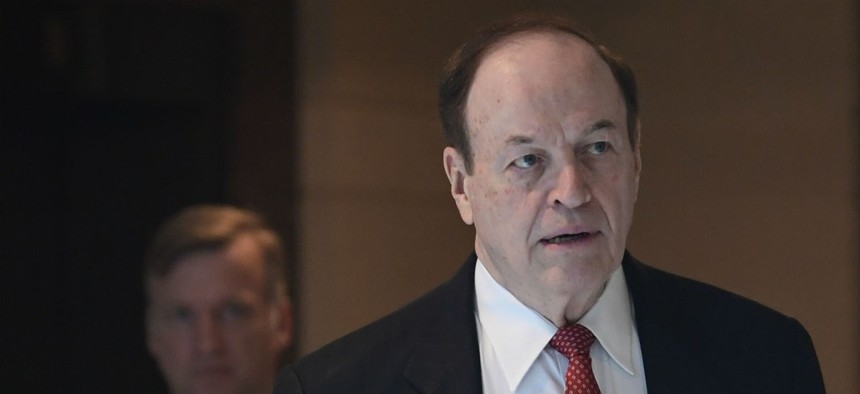Shutdown-Averting Bill Could Doom 2019 Pay Raise for Feds, At Least for Now
Proposed continuing resolution funding federal agencies until February would be “clean,” making it likely President Trump’s plan to freeze federal civilian employee pay would move forward.
Republican appropriators said Wednesday morning that the stopgap measure intended to avert a partial government shutdown would not include language providing a pay raise for federal civilian employees, a move that would all but assure that President Trump’s plan to institute a pay freeze will be implemented, at least for now.
On Wednesday, Senate Majority Leader Mitch McConnell announced that he would introduce a continuing resolution to fund until Feb. 8 the roughly one-third of federal agencies that don't yet have full year appropriations. If enacted, the measure would avert a partial government shutdown. But lawmakers familiar with the legislation said that the bill would be a “clean CR” and lack language instituting a Senate-approved 1.9 percent pay increase for federal civilian employees.
“The CR doesn’t have that,” said Senate Appropriations Committee Chairman Richard Shelby, R-Ala., in regard to a pay raise. “We’re trying to keep the CR as clean as we can.”
Unless Congress approves a pay raise for federal workers before the end of the year, Trump’s proposal to freeze pay in 2019, first announced in February and formalized in August, will take effect. Members of the military, by contrast, will receive a 2.6 percent pay raise in 2019, the largest increase in nearly a decade.
Senate Democrats said they still are pushing to include a pay raise in the continuing resolution, and they are working to see whether the White House plans to finalize its pay freeze proposal. Absent congressional action, Trump must issue an order on whether or how to adjust federal employee compensation before the end of the year.
“We made a strong pitch that they should affirmatively provide for it in the continuing resolution so that it could take effect in January, so we are making a push that it should be included,” said Sen. Ben Cardin, D-Md. “I don’t know how the negotiations are going. There is a question as to what is the intent of the Trump administration if we just use a straight CR and what we could then do in February.”
If Democrats are unsuccessful in approving a pay raise this week, they plan to make sure it is included when lawmakers return to spending negotiations in February, when they will have a majority in the House. Such a raise could be applied retroactively to the beginning of the year, said Sen. Chris Coons, D-Del., who negotiated the inclusion of a pay raise earlier this year.
“It depends on whether there is a CR,” Coons said, casting some doubt on Wednesday’s developments. “It’s not perfectly clear whether there might be . . . Nothing is final until everything is final. That is an important feature of getting the bill done.”
Eric Katz contributed to this story.
NEXT STORY: Trump Gives Federal Employees Christmas Eve Off




